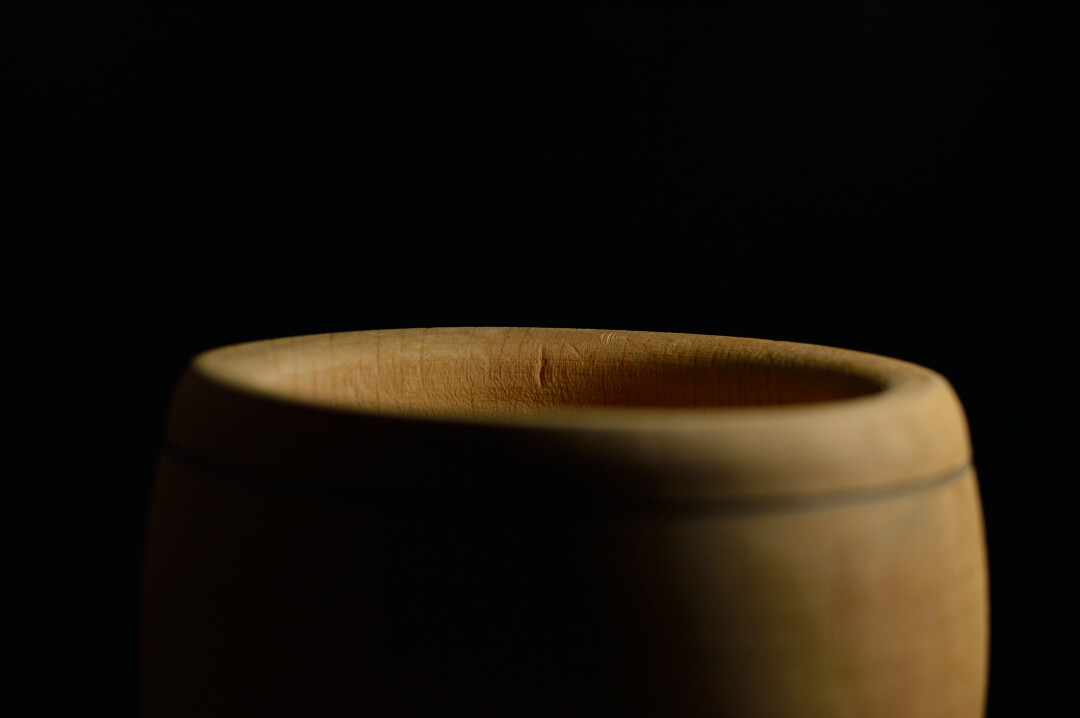
by Leigh Ann Dilley on April 19, 2023
Can a cup change your life? Cups are fun and oddly comforting. It’s probably because they can be so personal and diverse. They come in all shapes and sizes, and they are created for different purposes.
A cup is a vessel, used to hold liquid. Interestingly, it can also be a metaphor for a human vessel. Humans, similar to cups, come in different shapes and sizes too. We were created with unique characteristics, gifts, and talents. We were created with different purposes too, just like the cup.
Being the human vessel, when we drink from a cup, we agree to participate in whatever the cup contains or represents. Therefore, the content of the cup is a metaphor for an individual’s fate: because the contents of the cup now literally fill the person who drank it, and it will influence the trajectory of this person’s life. So, yes, I think a cup can change your life!
Depending upon the version you read, how many times is "cup" mentioned in the Bible? It appears somewhere between 59 to 94 times. Two cups rise to the top, especially when you consider our responsibility and participation with the cup. They are the Cup of Salvation and the Cup of Judgement. Once we understand what these cups represent, it will be much easier to transfer the concepts and knowledge to the other cups of the Bible.
Matthew 26:27:
“Then he took a cup, and when he had given thanks, he gave it to them saying, ‘Drink from it, all of you. This is my blood of the New Covenant, which is poured out for all for the forgiveness of sins.’”
What is this cup that Jesus offered his disciples that represents a new covenant? A Biblical covenant is described as a binding agreement. The word covenant comes from the same root word meaning “to cut” because, in Biblical times, covenants were often sealed in blood. Remember God’s covenant with Abraham in Genesis 15? Animals were cut in half and God moved between the two halves of the animals to seal the contract. (A marriage contract was often “cut” between two families in a similar ceremony.)
The disciples likely did not anticipate all the changes this cup of the new covenant would offer humanity, but they likely knew that if they drank from the cup Jesus offered, it meant they would agree to participate in everything their relationship with Jesus had to offer. Jesus promised a life-long commitment to do life together and the forgiveness of sins. Not surprisingly, the new covenant has been compared to a marriage relationship. Don’t couples agree to face the future together and be there for each other? In Isaiah 54:5, God tells the widow that He will be her husband. If you think of this relationship as being as intimate as a marriage, it requires a lot of time and attention. How would your spouse respond if you only visited him or her on Sundays and only talked to him or her when you were in crisis?
Subscribe to the Timberline Church Blog
To top it off, Jesus promised to come again, as a bridegroom, when he returns for the wedding feast as described in Revelation 19:9! We, as the church, will be the Bride of Christ.
Our responsibility to this relationship has to do with sin and forgiveness. What does sin do to any relationship? When we sin, it’s as if we step outside of this relationship. Confession and forgiveness are vital pieces to any relationship, but especially with Christ because it refreshes the commitment and aligns us once again with each other. Jesus promises to forgive, and since we are forgiven, we have a responsibility to forgive others. Forgiveness is a Cup of Suffering because when we forgive someone, we absorb the debt of the sin, mimicking what Jesus did for us. It’s hard and humbling, but we are called to be like Christ, right? That’s a cup we should drink.
In the Garden of Gethsemane. Jesus being fully God, knew what was coming next. He was also fully human, and he tells his disciples, “My soul is crushed with grief to the point of death.” He leaves them and walks a short distance, falls to the ground, and prays:
“My Father, if it is possible, let this cup be taken away from me. Yet, I want your will to be done, not mine.” (Matthew 26:39)
Nowhere else in the Bible do we see him like this. Jesus is different in this scene. Many people have died — and would be called to die — for their faith, so it’s not just dying that has shaken Jesus. Jesus has been alerted that there is more than death in this cup. What’s more is the presence of God is not in this cup. This cup is the full judgment, wrath, and vengeance of God for the penalty of sin.
Psalm 75:8 describes this cup this way: “A foaming cup, filled with judgment, mixed with fury is in the hands of the Lord Jehovah, full to the brim and ready to run over. He filled it up for the wicked and they will drink it down to the very last drop!”
Jeremiah 25:15:
“This is what the Lord, the God of Israel, said to me: ‘Take from my hand this cup filled with the wine of my wrath and make all the nations to whom I send you drink it.’”
Who was this cup originally meant for? Not Jesus! This cup of wrath was meant for me…and you. We are “the wicked people!”
Did Jesus complain about this portion and cup? Isaiah 53:7 says, “He was oppressed and treated harshly yet he never said a word. He was led like a lamb to the slaughter. And as a sheep is silent before the shearers, he did not open his mouth.”
What did Jesus say on the cross? “Forgive them, they know not what they do.” Only once did Jesus cry out in agony when He said, “My God, My God why have you forsaken me?” God had to separate himself from Jesus while he lay dying on the cross because Jesus became sin, and where sin exists, God cannot be. Jesus drank this bitter cup to the last drop.
When Jesus drank this cup of wrath, he changed the trajectory of our lives so we could inherit the Kingdom of God instead of the Cup of Wrath. The responsibility for creating the need for this cup is totally on us, but our participation was not required — it was a gift. There is this verse in Hebrews 12:2 that now, makes sense. “For the joy set before him, he endured the cross, scorning its shame, and sat down at the right hand of the throne of God.”
Why, then, do we suffer? In John 16:33 Jesus says:
“‘In this world, you will trouble. But take heart! I have overcome the world.’”
The trouble Jesus is referring to is known as the Cup of Suffering. When it’s our turn to suffer, what is the first thing we ask God? “Why this suffering?” “Why me?” “Where are you, God?” Cups of Suffering, are not punishments!
God’s presence will be with us when we suffer. Jesus was alone. He molds us and brings us into a closer relationship with Him. One that is mature and trustworthy. None of our suffering is wasted. That is why James 1:2 says when troubles of any kind come your way, consider it an opportunity for great joy. James is telling us we can experience joy and blessing during times of trial if we trust the perfect work God is doing and allow him to lead us through these difficult seasons.
Revelation 20:12-15 says:
“And I saw the dead, great and small, standing before the throne, and books were opened. Another book was opened, which is the book of life. The dead were judged according to what they had done, as recorded in the book…”
It looks like we still have a Cup of Judgement in front of us, doesn’t it? Our salvation is not based on deeds, it’s based on faith! The deed we will be judged on is: Did you or did you not accept the Cup of Salvation? If you did, guess what? Your name is in the book and your judgment cup is empty — because Jesus already drank it! That is why we read in Romans 8:1 that “There is no condemnation for those who belong to Christ Jesus.”
And I love what 1 Thessalonians 5:9 has to say:
“God did not appoint us to suffer wrath but to receive salvation through our Lord Jesus Christ.”
With what shall we fill the empty cup?
Because Jesus drank the Cup of Judgement, we get to fill our cups with blessings! Thankfully for us, we have a God whose character is to bless us. If you are in a season in which you do not feel blessed, ask God to raise your awareness of your blessings and fill your cup with what He reveals to you. Praising God in dry seasons is a powerful way to worship.
Several years back, I got in a bad habit of thinking negative thoughts and speaking harshly about some people with whom I had close relationships. Thankfully, God revealed to me that my thoughts were not helping my relationships by showing me Philippians 4:8:
“Whatever is true, whatever is honorable and worthy of respect, whatever is right and confirmed by God’s word, whatever is pure and wholesome, whatever is lovely and brings peace, if there is anything worthy of praise, think continually on these things.”
As a human vessel, we are what we take in: what fills our thoughts, what we are intentional about, and who we spend time with. It all comes out and will influence our words and actions at some point. I filled my cup with negativity and critical thinking, and my relationships began to suffer. When I changed my thinking to more positive things, my relationships improved. God rescued me and refocused my thoughts through His word. Let God’s word fill your cup.
We live in a culture that is making up its own truth. As truth becomes more difficult to determine, remember Jesus called himself truth. Pastor and author, Timothy Keller, says our goal is to turn head knowledge into heart and soul experiences, which allows you to apply God’s word to your life. A word of caution about your feelings: Your feelings do not always represent truth. Feelings are not heart and soul experiences. Be careful not to confuse them. Heart and soul experiences must be consistent with the word of God because they are true! Let truth fill your cup.
Earlier, I mentioned it’s our responsibility to forgive because we are forgiven. Grace and mercy are beautiful things, let them fill your cup. Giving someone grace and mercy may look as simple as choosing not to be easily offended.
As a human vessel, God fills us with unique traits, personal characteristics, emotions, gifts, and talents. If we decide we do not like the cup He has given us, we have two choices, to accept the cup and receive his best blessing or refuse the cup and try to be in control of our own lives. Did Jesus refuse his cup? Jesus’ cup saved us! God had a plan for Jesus, and He has a plan for you. 1 Timothy 6:15 says, “God is the blessed controller of all things.”
If He is a blessed controller, invite God to fill your cup.
And when your cup is full, - don’t forget to drink it!
This version of “The Cup” was condensed from a recent Women’s Event. A more detailed lesson was given and women enjoyed making a pottery cup of their own to remember what God has done for them through “The Cup.”



